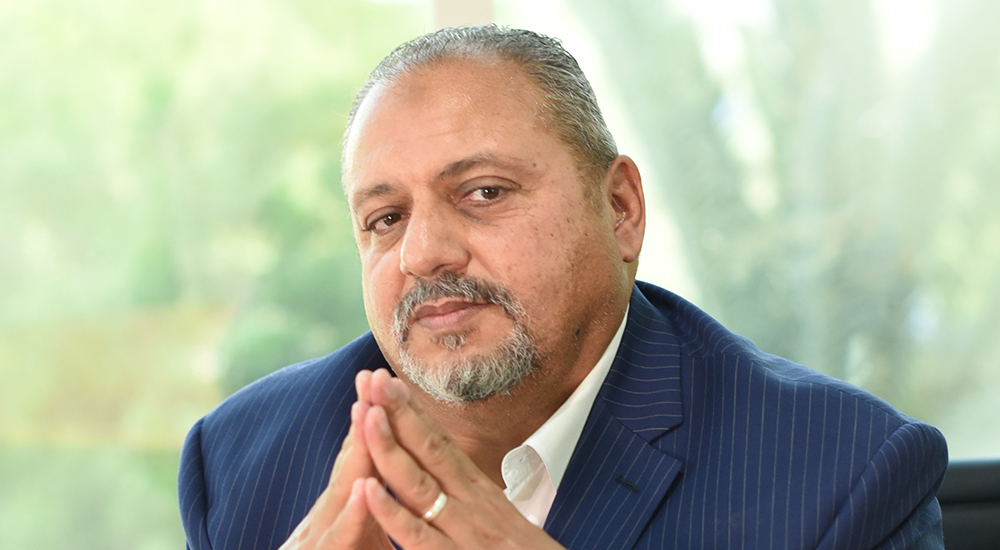Top Transformation Champions: Seeding the cloud for next-gen enterprises

 Digital resiliency has been at the heart of the digital transformation journey for regional organisations. Many organisations are leveraging cloud services today to become digitally resilient and subsequently business resilient. The GBM Cloud Report released earlier this year indicates that 56% of surveyed regional organisations followed a cloud-first strategy in 2021.
Digital resiliency has been at the heart of the digital transformation journey for regional organisations. Many organisations are leveraging cloud services today to become digitally resilient and subsequently business resilient. The GBM Cloud Report released earlier this year indicates that 56% of surveyed regional organisations followed a cloud-first strategy in 2021.
Cloud services provide organisations with scalable, fast-to-deploy, integrated digital platforms for business continuity while enabling them to launch products faster and drive insight-led decisions from their data. Artificial Intelligence, Machine Learning, Big Data, and analytics are also being incorporated by organisations for developing future-ready IT infrastructure and reimagining how technology can improve their businesses.
Although most organisations are undergoing digital transformation, they are at different levels of maturity, stuck in a digital deadlock and unable to accelerate their initiative. As organisations strive to break out of this digital deadlock, they need to overcome significant organisational and technology barriers.
Companies must think long-term when adopting new technologies, by focusing on changes which support business priorities rather than adopting multiple technologies, all at once.
Since the onset of the pandemic, there has been a surge in digital transformation initiatives among regional organisations. The focus is on upgrading legacy infrastructure and introducing emerging technologies such as AI, ML, and edge computing.
A key facilitator of digital transformation is also the increased adoption of the cloud, and the year’s GBM cloud report shows that more than half of the surveyed organisations are utilising cloud services to create agile and scalable infrastructure, which is improving their ability to expand and optimise operations based on market requirement.
By continually transforming the legacy infrastructure and building a culture of innovation, organisations will be able to effectively integrate newer technologies with minimal disruption to their operations.
The IT landscape is constantly evolving and IT leaders must be agile and open to innovation to create a business model that continues to grow and push boundaries. Besides, the remote working model will drive organisations to focus on increased collaboration across the workforce through stronger channels of communication. It will also create a need for robust cybersecurity measures to protect the business and operations.
Globally, several countries have rolled out 5G services including the GCC which has been an early adopter. The coming years will see further uptake of the technology due to an increase in edge computing. 5G will enable unprecedented levels of connectivity and revolutionise the way people live and work. It is also expected to significantly boost the adoption of the latest technologies.
Metaverse is another technology that gained currency in the last year across industries with businesses exploring its potential to reach a wider audience base. However, companies require sophisticated technological infrastructure to create their presence within the metaverse.
Cloud is a key driver for the metaverse, considering the storage and processing power required for companies to engage in this universe. Metaverse also brings together a range of other technologies including AI and the Internet of Things to connect the virtual world to reality and enable its scalability and automation.
Companies, however, need to ensure they have progressed substantially on the path to digital transformation before they decide to be a part of the metaverse.
The other key aspect of any technology adoption is sustainability, which is no longer just a good-to-have factor for the business. It has now become one of the pillars around which companies must design their operating models. What is also obvious is that sustainability is intrinsic to business continuity, as it enables digital transformation to take place in an environmentally-friendly manner while enhancing company performance in many aspects.
As regional enterprises look to fast-track sustainability into their business, organisations must consider incorporating technologies that can have the maximum impact on their sustainability goals. Emerging technologies such as AI and IoT enable intelligent automation, which in turn allows for the reduction of carbon emission and energy expenditures, and brings in deeper insights into enhancing operational performance.
Cloud is also a key technology that allows businesses to scale up or down and deploy new applications quickly, which can have a significant impact on energy usage and carbon reduction.
Key takeaways
- Organisations may get stuck in a digital deadlock, unable to accelerate their transformation initiatives.
- With scalable, fast-to-deploy, integrated platforms, the cloud can facilitate enterprise digital transformation.
- GBM Cloud Report indicates that 56% of regional organisations adopted the cloud-first strategy in 2021.
- Cloud allows businesses to scale up or down and deploy new applications quickly, thereby reducing energy usage.






